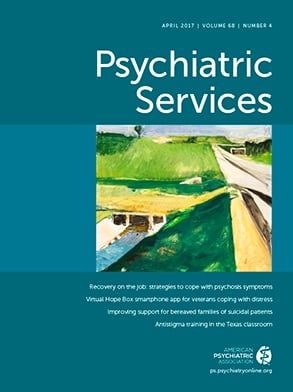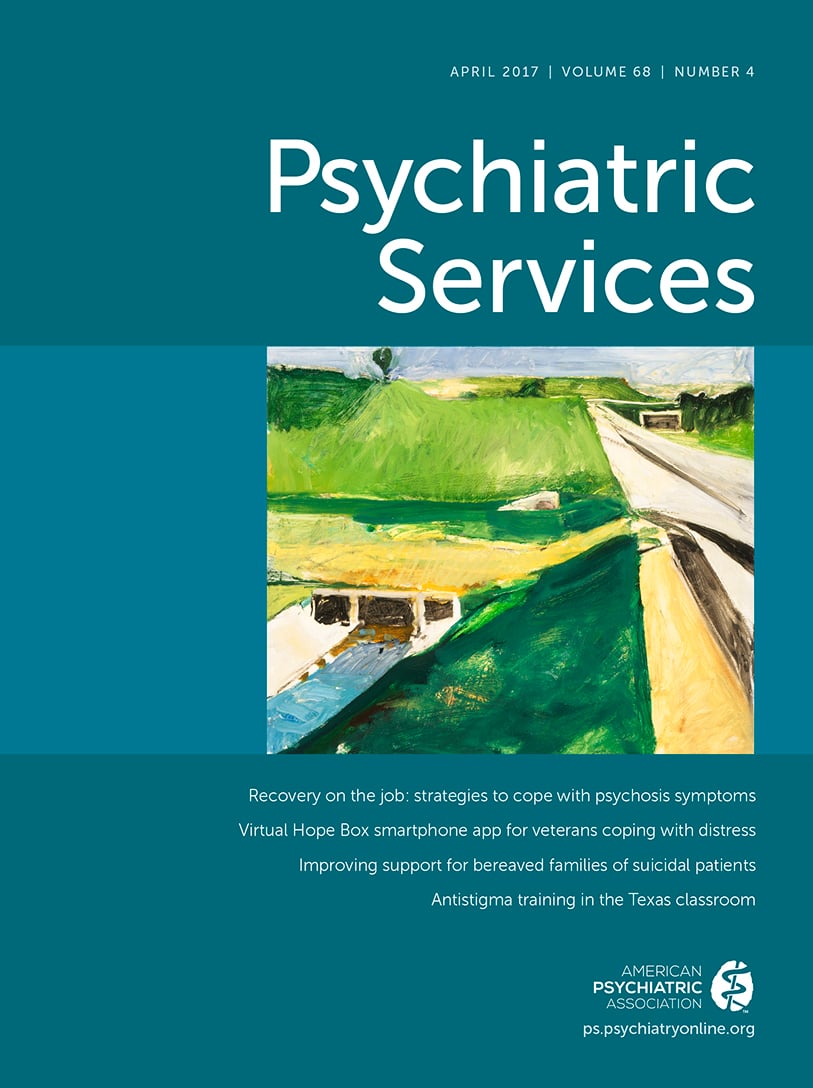TO THE EDITOR: As a practitioner who has published letters and an article in Psychiatric Services, I would like to offer my perspective as a way of encouraging submission from other clinicians.
My own efforts have been limited to issues related to seclusion and restraint, the use of pulse oximetry to prevent asphyxiation from these procedures (
1), and discussion of whether psychiatrists and therapists should be involved in restraining patients (
2). Frequent clinical encounters prompted what I’ve written, and all clinicians likely have ideas from their practices that would benefit from being published.
Psychiatric Services offers a forum for that.
The journal has a tradition of publishing articles and opinions, and it has debated issues that cross the boundaries between academic research and clinical practice in the delivery of behavioral health care. Indeed, the roots of psychiatric science and practice stem from clinical observation. The careers of famous practitioners Pinel, Charcot, Freud, Dorothea Dix, and Kraeplin derived from written accounts of delivering mental health care. Today, careers dictate that researchers publish scientific studies and that clinicians deliver care. This dichotomy does not serve our patients. A connection between researchers and clinicians and other stakeholders shapes the role of science in practice. That dialogue and sharing of ideas allows direct care to inform the development of new treatment strategies that can be tested in research. In that spirit, Psychiatric Services seeks to provide publication opportunities to clinicians as well as researchers and policy makers.
Clinicians come from diverse backgrounds, training, and work experiences. However, ideally, they are delivering treatment based on scientific knowledge, patients’ accounts, observation, hypothesis formation and testing, and assessment of results. By publishing insights gained from these activities, clinicians offer other clinicians and those engaged in research a view into the consultation room.
Which among a clinician’s myriad experiences has the best chance of being published? One might consider five questions: Am I passionate about it? Does the topic have application beyond my practice? Is the topic novel or innovative—does it offer a perspective that has not previously been published? Can the topic be covered briefly and succinctly? Would it be helpful to have other clinicians be coauthors? This might support writing tasks, as well as provide an initial way of looking at the validity.
Publishing in academic journals is just one outlet for clinician-authors. Books, magazines, and blogs or other online outlets also enable sharing experiences and opinions. Publication in scholarly journals offers the advantage of peer review before the work is incorporated into the academic narrative on the topic.
Lack of knowing how to formulate a clinical issue should not be a barrier to writing; discussions with other authors may be helpful, and editorial advice can be sought from the Psychiatric Services editorial office. Moreover, the earlier that advice is sought, the more focused and encouraging the writing effort will be.
Clinical writing requires persistence, patience, acceptance and use of criticism, and time spent away from other activities. Perhaps it becomes “The Road Not Taken” (
3). On the other hand, striving for publication can be personally and professionally rewarding. I hope you consider choosing this “road less traveled by” (
3) and submit something—to this journal or in other settings—because advances in mental health care depend on it.

